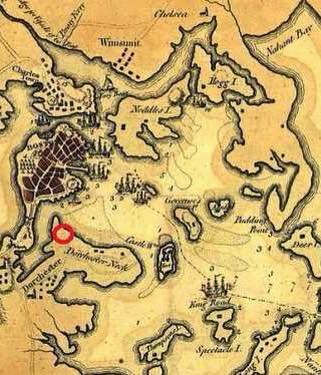Happy Evacuation Day Boston! On this day in 1776, General Howe and the British military evacuated Boston ending the 11 month Siege of Boston.
Only a few days before, on March 4, Washington had decided to place newly arrived cannon from Fort Ticonderoga on Dorchester Heights. Washington hoped that the British would attack the Heights which would allow him to send men across the Charles River to attack the British in Boston.
General Howe had, in fact, originally planned an assault on the heights even though he knew it meant the possibility of more casualties to the British army than had occurred at The Battle of Bunker Hill. On March 5 and 6, a storm arrived which thwarted his plans of attack and Howe, realizing Boston was not a strategic military position, made the decision to evacuate his army to Halifax, Nova Scotia where he could await reinforcements before returning to attack the rebels at a new location: New York.
The evacuation of Boston marks a drastic change in the executive power of Massachusetts. From 1692-1774 Massachusetts had royally appointed governors who acted as representatives of King and Parliament, from 1774-1776 Massachusetts essentially was run by the leading generals of the British military-Generals Gage and Howe, and now, finally, both royal governors and military control were gone. British authority in Boston had officially come to an end but it would not be until October of 1780 when the people of Massachusetts would establish a new and permanent state government with a state governor.
Mezzotint of General Sir William Howe. Thought to be American Revolution but uniform style suggests French and Indian War era with the Order of the Bath badge added later.
Dorchester Heights is circled in red on Dorchester Neck across from the peninsula of Boston where the British were surrounded on all sides by the Continental Army and Colonial Militia.
Portrait of a young George Washington at 40 years old in 1772. At the time of his appointment as commander-in-chief of the newly formed Continental Army, Washington was only 43, and would have been 44 at the time of the British evacuation of Boston.
A map of the peninsula of Boston with Dorchester Heights labeled off to the right of Boston Neck




No comments:
Post a Comment